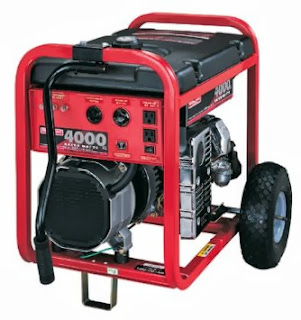Generators put you in control of your power source. And when you're faced with an unexpected outage, standby power can be more than handy.
Depending on your needs, you can buy a reliable generator for as little as a few hunderd dollars or spend up to $8,000 for a deluxe model. With such a wide price range, it's important to choose a generator tailored to your situation.
Selecting a Size
Before buying, you'll need to determine how much power you'll require from a generator, which is rated in watts.
- Decide which appliances you can't live without. Refrigerators, microwaves, furnace fans, lights, televisions, and radios head many people's necessity lists.
- Calculate how much electricity those items need by checking each product's faceplate or owner's manual.
- Find the total wattage of all your necessary appliances. The generator you buy needs to deliver at least that much wattage and preferably a bit more.
Warning: Appliances with motors (such as freezers, refrigerators, and furnace fans) require additional wattage to start. A 700-watt refrigerator, for instance, could require an additional 2,200 watts when firing up. If you plan to start a group of motors simultaneously, you'll need a generator with the capacity to supply the necessary starting current for the total wattage. Without sufficient starting power, motors can overheat, burn out, or trip the generator's circuit breaker.
